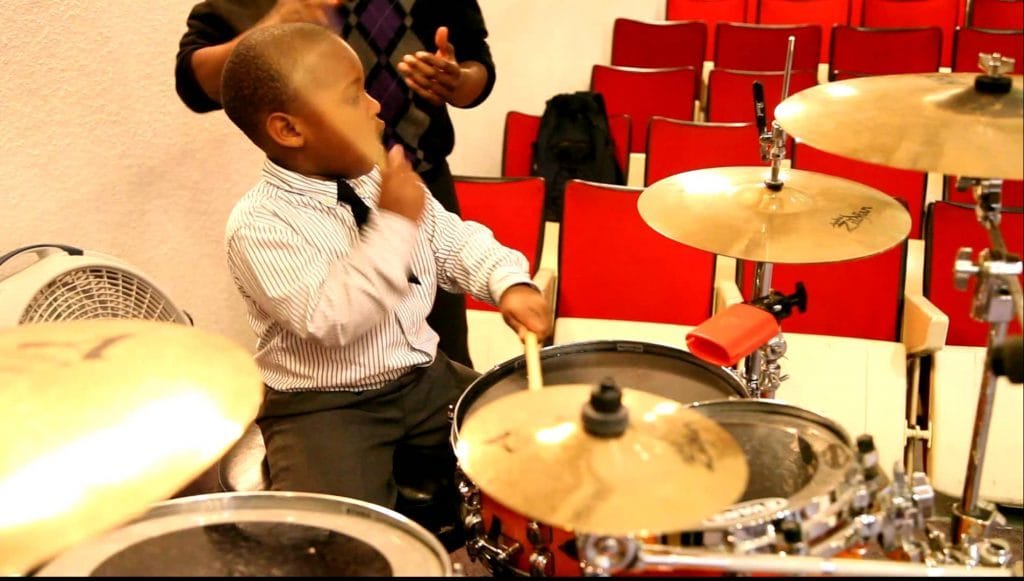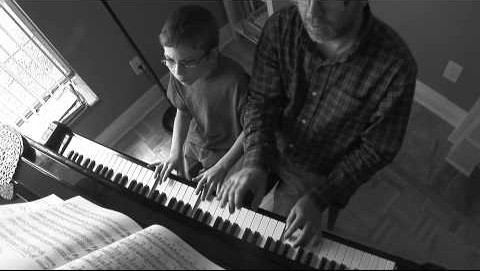Parental involvement, invariably, means a positive effect on a child’s long-term music education. The very fact that the parents are watching and supporting their child encourages him/her in going far in their thirst for learning quality music through instruments.
Several types of research have been conducted to verify this and several kinds of research are still going on. Being there to support your child in her musical journey not only helps her be a better musician but it also strengthens your bond with her or him.
Approve their choice of musical instrument

Maybe the sound of stringed instruments like violin gives you a headache or your neighbors won’t really appreciate your child’s efforts in mastering the drums but that should never be expressed to your child. Any interest that he/she shows in a musical instrument is a yearning to express themselves through music and it should not be stopped or discouraged for any reason, not even your own (or others) headaches.
Encourage more practice sessions and help them be consistent
Consistency is the go-to motto when trying to learn or do anything new and learning an instrument is no different. Encourage your child to practice more and at regular times daily until it becomes a habit. Perhaps she can slip in a jam session every alternate day as a replacement for routine TV time. Go the extra mile during weekends to grow that love and interest she showed for music in the beginning.
Engage a compassionate tutor

Seeking private music tutorials is common and sometimes quite necessary, as most music classes have thirty to forty students in each class, making it very difficult for the tutor to provide individual attention to them. Children tend to put in more effort when they trust their tutor and they start showing more interest in practicing outside lessons, which results in remarkable improvement very quickly.
Open their minds to the variety of music in this world
There are no ends to the number of genres of music the world has come to know and savor across ages. Take your kid to different kinds of concerts and musicals, especially classical music and fusion music to show them that their learning need not be confined to what is popular or what is widely applauded. The quality of music can always improve and this improvement will only help her in growing both as a person and as a musician.
Admire their genuine efforts and progress
Kids may be naive and innocent but they are much smarter than you think. They can pick up on halfhearted compliments more than anyone else. So giving them offhand remarks discourages them and has a negative impact on their thirst for musical knowledge. Instead, genuinely watch all the progress and effort that your child puts into his learning and appreciate them.
Reward your child

It’s as paramount to give tangible rewards to your children, as it is to show verbal appreciation in order to encourage her to pursue her interests. Perhaps her favorite movie, an ice cream or a little extra TV time should do the trick. But be true to yourself and reward her only when she has earned it and not to favor her or him.
Put on a show
Set aside some time, a few days a week and let your musical amateur take center stage. Ask her to put on a show for you and don’t just sit there and nod. Get up and dance or do a little routine that the whole family can join in on. Ask everyone to participate especially older siblings. This not only encourages family bonding and a sense of security but also boosts her self-esteem and interest in learning the instrument.
Cultivate a genuine interest

Ask your child to teach you some of the new things she learned, perhaps a new note, or a new tune. Post her achievements on social media or other family rich areas to show that you are there for her, every step of the way. Cultivate a true interest in their journey and it will give you and your child a bond that is stronger than ever. Maybe it would help you to learn the instrument yourself, just another feather in your hat. Imagine family concerts, or maybe even a band! Now you’re talking!
Featured Image: Image Credit
May 2012: Donated $4 million to the CMHOF for music education. The Taylor Swift Education Center opened in 2013. pic.twitter.com/OSVK8Ta1lB
— a (@kimonoswift) May 11, 2016
[Piano Wizard] Parents Play the Most Central, Yet Vulnerable Roles in Children’s #Music_Education https://t.co/cQBC9pWeKO #KESocial— Kovitz Enterprises (@KESocial) May 10, 2016
Related Articles:
25 Tips for Supporting Your Young Musician [Infographic]
So you’ve enrolled your child in piano lessons. End of story, right? No. Learning this challenging instrument — or any instrument, at that — will require a long-term commitment of at least a few years. It takes teamwork to make it happen.
My student Mallory’s mother, Christy, understands this. A couple of months ago, she asked for a consultation during lesson time, and explained her concerns that her 13-year-old daughter seemed to be losing interest in lessons. The three of us agreed to concentrate on making practice times consistent and holding Mallory more accountable. Mom, student, and teacher cooperated toward a mutual goal. Via TakeLessons
LEARNING THE PIANO: 7 IMPORTANT POINTS EVERY PARENT SHOULD KNOW
The look of wonder and joy on 6 year old Natalie’s face as we explored the sounds that the piano makes just made my heart sing and her mum, who came along as well, was also clearly loving the experience! But it really got me thinking about how well teachers convey to parents what learning the piano involves beyond the first lesson and just how important the parental role is in making it a successful venture.
So I thought I would write to my new ‘piano family’ and just put them in the picture a little more with 7 important points I think they and every parent should know about learning the piano. If this resonates with you please do share it with all the parents you have contact with! Via The Curious Piano Teachers
Parent’s Guide: Top 3 Violin Tips for Parents
One of the hardest things you’ll face as the parent of a musician is handling the discipline of regular practice. It’s rare for a child that plays a musical instrument not to have times where they’d rather be doing something else (anything else!) when it comes time to practice. If parents fail to hold firm (something I see far too often), the child may learn bad habits that will haunt them later in life. When it comes to starting a musical instrument–and sticking with it–the stakes can be high! Via Violin Tutor Pro


